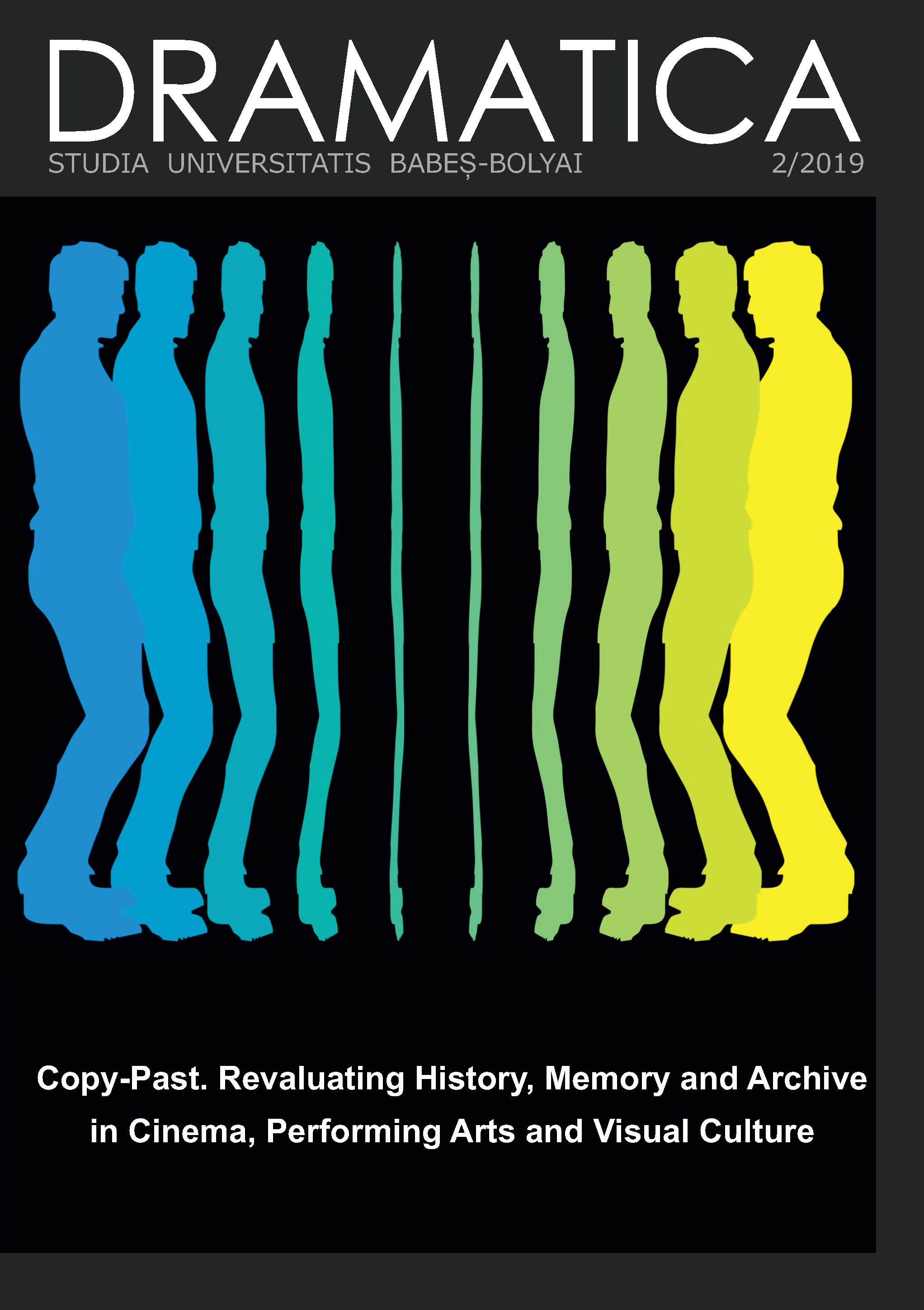Cognitive Schemata and Meaningful Strategies in Adapting Ian McEwan’s Novel, "Atonement”
DOI:
https://doi.org/10.24193/subbdrama.2019.2.10Keywords:
adaptation, cinema, cognitive schemata, reception, copy, interpretation, fidelityAbstract
Abstract: Adapting literary works for cinematography has not been of much interest until two-three decades ago, mainly because of numerous aporias and biases having to face across time. This paper is considering looking into this subject through the dynamics of the workflow of creation and receiving the product deriving from it with whatever mental activity it involves in order to be meaningful. “Atonement“ based on Ian McEwan’s novel and directed by Joe Wright, offers a good example concerning the filmmaker’s double orientation in the process of artistic production: on the one hand, towards the literary text, attempting to respond to the indications offered by it, on the other hand focused on the audience, attempting to create a similar impact, to guide his way of perceiving the story, to anticipate the viewer’s emotions and the cognitive ways through which he could access a meaning. Throughout its entire unfolding, the film is playing with the spectator, activating a series of cognitive schemata which will subsequently be subject to correction, guiding the activity of imagination in a manner that is analogous with the one operated by the strategies of the literary text.References
CARNEVALE, Rob. “Atonement - Joe Wright Interview.” Indie London, 2007. www.indielondon.co.uk/Film-Review/atonement-joe-wright-interview.
COOK, Jon, Sebastian Groes, and Victor Sage. “Journeys without Maps: An Interview with Ian McEwan.” In Ian McEwan, edited by Sebastian Groes. London: Bloomsbury, 2013.
DOUGLAS, Edward. “Joe Wright on Directing Atonement.” Coming Soon, 2007. http://www.comingsoon.net/movies/features/39526-joe-wright-on-directing-atonement.
HAMPTON, Cristopher. “Introduction.” In Atonement. The Shooting Script. New York: Newmarket Press, 2008.
HUTCHEON, Linda. A Theory of Adaptation. New York and London: Routledge, 2006.
MCEWAN, Ian. Atonement. New York: Nan A. Talese (Random House Inc.), 2002.
Downloads
Published
How to Cite
Issue
Section
License
Copyright (c) 2019 Studia Universitatis Babeș-Bolyai Dramatica

This work is licensed under a Creative Commons Attribution-NonCommercial-NoDerivatives 4.0 International License.


